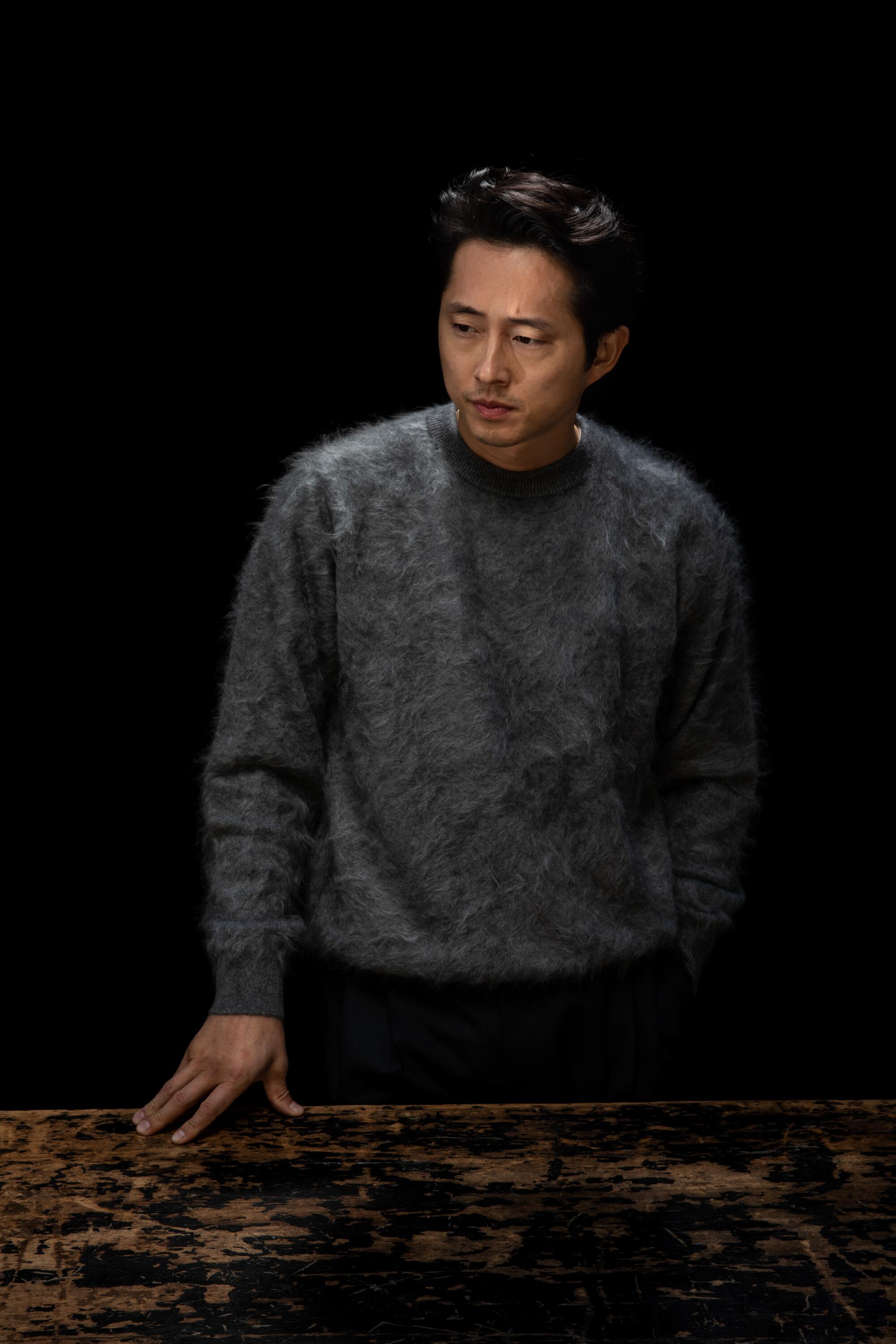Steven Yeun is something we haven’t seen in a while — a new kind of leading man.
The Korean American actor had a tiny handful of credits when he scored his career-making gig on “The Walking Dead” in 2010; he quickly became a fan favorite on one of TV’s biggest shows. His Glenn Rhee evolved from quick-moving, sprite-like good guy to a leader of the group of survivors — a respected, zombie-killing warrior and a sex symbol in an interracial relationship. That kind of versatility has marked his career, and is decidedly unusual compared with Hollywood’s traditional deployment of actors of Asian descent.
Discover the change-makers who are shaping every cultural corner of Los Angeles. This week we bring you The Creators, who are leaving their mark in film, art, music and more. Come back each Sunday for another installment.
Since leaving the show, Yeun, 40, has compiled the most impressive CV of its alumni. He scored best actor Oscar and Screen Actors Guild nominations for his heartfelt performance as the struggling, dreaming immigrant father in “Minari,” a turn reminiscent of Gérard Depardieu’s in “Jean de Florette.” After a whiplash change of gears, he collected awards, including a Critics’ Choice, a SAG, and an Emmy, as the morally smudged loser with anger issues in “Beef.” He won a Los Angeles Film Critics Assn. award as the enigmatic cool guy in the acclaimed “Burning”; and played an accidental action hero in “Mayhem,” a former child actor enthusiastically hoping to commune with aliens in “Nope,” and an emerging superhero learning brutal lessons in the animated “Invincible” (98% positive on Rotten Tomatoes).
Bold, important filmmakers want to work with him: Lee Chang-dong, Jordan Peele, Boots Riley (“Sorry to Bother You”), Bong Joon Ho (twice; in “Okja” and the upcoming “Mickey 17”). Next, he headlines a postapocalyptic sci-fi romance opposite Kristen Stewart (“Love Me,” which competed at Sundance). He was to join the Marvel Cinematic Universe, reportedly as Sentry, one of the most powerful antiheroes in all of Marvel, in “Thunderbolts,” but backed out — by email. Instead, he is confirmed to reunite with “Minari” writer-director Lee Isaac Chung for what screenwriter Eric Roth has called a “small love story,” produced by Bong.

So he’s in demand. What makes him a “new” kind of leading man? Name another Asian American actor to score this kind of variety, this kind of acclaim stateside. Yeun is relegated to neither nerd, nor mysterious villain, nor kung fu master roles. His characters have relatable struggles, crazy dreams and the whole rainbow of emotions. It’s a sign of changing times, sure, and of doors kicked down by the streaming era. Today, Henry Golding leads rom-coms and “Riverdale” star Charles Melton is racking up acclaim for “May December.”
But Yeun is doing all of the above and more. He’s demonstrating range Asian American actors haven’t had the opportunity to display in film and TV before. Whether his success as a leading man can lead the way for others remains to be seen, but his trajectory only points up.


